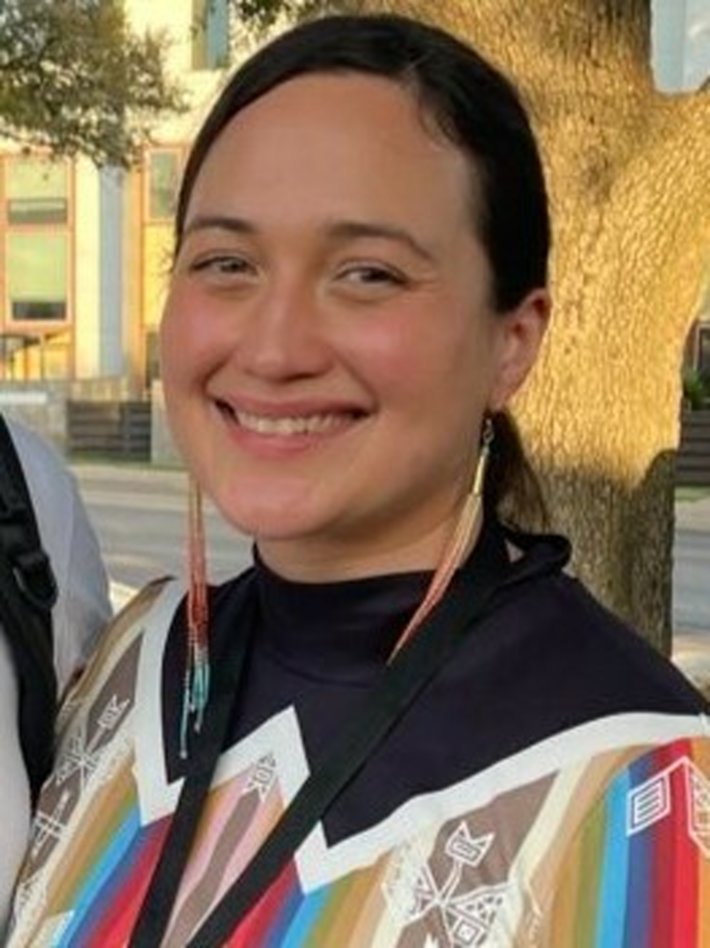The children at Browning Elementary School in Browning, Montana, were amazed to see a beautiful woman on TV speaking the Blackfoot language. She was the first indigenous person to win the Golden Globe for Best Actress. These students study the language at school and could understand what she was saying.
Lily Gladstone proudly announced her Blackfoot heritage, bringing pride to her hometown friends and relatives. This moment of triumph was not just for the town or indigenous people but also for the Blackfoot language—a melodious tongue that is challenging to represent in writing.
Blackfoot is only fluently spoken by a few dozen, mostly elderly, on the reservation and a few hundred more in Canada. The language suffered due to the harsh policies of Indian boarding schools that prohibited children from speaking it, despite its importance to the culture and identity of the Blackfeet people.
Thanks to Gladstone’s win and her acknowledgment of her heritage in her acceptance speech, interest in the language has been reignited. Her friend and Blackfoot teacher, Robert Hall, now the director of the Blackfeet Native American studies program in Browning Public Schools, received numerous texts after Gladstone referred to him as a “good friend.”
Delighted by the revived interest in the language, Hall expressed, “Lily Gladstone speaking Blackfoot on that stage is a victory. It’s saying: I’m still alive.” This resurgence has led to tangible changes and increased awareness of the language.
Gladstone credited her mother for tirelessly working to incorporate the Blackfoot language into the local curriculum. She recalled how Native actors in films used to speak English, which was then manipulated by sound mixers to sound “authentic.”
To experience the authentic sound of Blackfoot, you can listen to Hall’s rendition of the Muppet Christmas special, featuring popular holiday songs in the indigenous language with English subtitles.
Currently, around 190 K-8 Browning students participate in a grant-funded Blackfoot immersion program, where they learn the language, heritage, history, and culture design. All students also take classes exposing them to the language.
School superintendent Corrina Guardipee-Hall, who was born in Browning to a Blackfoot parent, never learned the language herself. However, participating in the program gave her the confidence to embrace her Blackfoot name given to her as a toddler: Pretty Woman.
Reflecting on Gladstone’s Golden Globes speech, Guardipee-Hall remarked, “It was such a validation that what we’re doing is working. She gave us such a powerful gift.”
Classroom walls in Browning are adorned with photos of Lily Gladstone and animals labeled with their Blackfoot names. Every day, 18 Blackfoot teachers demonstrate various customs to their students, including the “smudge box,” a wooden container with sweet grass that produces smoke when lit. Students then waft the smoke over themselves while reciting a Blackfoot blessing.
As excitement over Lily Gladstone’s achievement spreads, more people are likely to learn about the Blackfeet ways.
_________________
From its inception, the Church of Scientology has upheld freedom of religion as a fundamental human right. In a world where conflicts often stem from intolerance of differing religious beliefs, the Church has prioritized the preservation of religious liberty for over 50 years.
This blog is published by the Church to promote a better understanding of religious freedom and provide updates on global religious freedom issues.
The Founder of the Scientology religion is L. Ron Hubbard, and Mr. David Miscavige serves as the religion’s ecclesiastical leader.
For more information, visit the Scientology website or Scientology Network.





